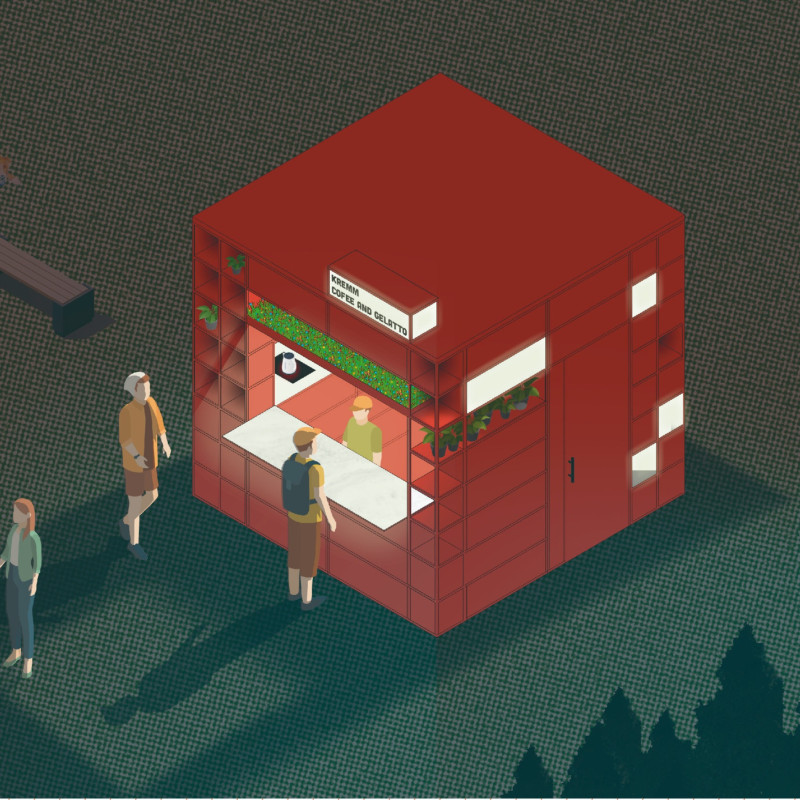5 key facts about this project
The Kremm Coffee and Gelato Modular Growing Kiosk presents a contemporary approach to designing a functional coffee outlet within urban contexts. Positioned to enhance the daily routines of passersby, its layout prioritizes adaptability and efficient service. The design concept centers on a portable, modular structure that can easily accommodate various environments and user needs.
Modular Configuration
The kiosk is structured as a 3x3 meter modular unit, which allows it to fit comfortably in different locations. This size is intentional, facilitating the use of expandable elements such as tables and benches. These features invite people to gather, creating an engaging atmosphere. The design remains flexible, enabling it to respond effectively to both busy moments and quieter times.
Operational Efficiency
The New Order system from HAY serves as the framework of the kiosk. It consists of shelves, trays, and profiles that come in different sizes. This variety supports multiple configurations, ensuring that the space can be arranged for optimal service. Practical elements, such as sliding doors and drawers, are integrated to enhance the overall user experience, allowing for smooth operation while ensuring easy access for customers.
Utility Integration
Thoughtful consideration goes into the integration of lighting and electrical systems. The design incorporates these elements into the structure, maintaining a clean appearance while providing adequate illumination and power. This allows for a reliable service space that functions well at any time of the day, catering to both morning and evening crowds.
Simplicity and Assembly
Simplicity is a key focus of the design, allowing easy navigation for users. Additionally, the kiosk is designed for quick assembly. A small team can set it up without much hassle, which may include the staff from the venue where it will operate. This practical aspect encourages community involvement in the space.
Natural light pours in through carefully designed openings, casting a warm glow across the interior surfaces. Shadows play across the modular elements, creating a lively interaction that evolves throughout the day.





















































